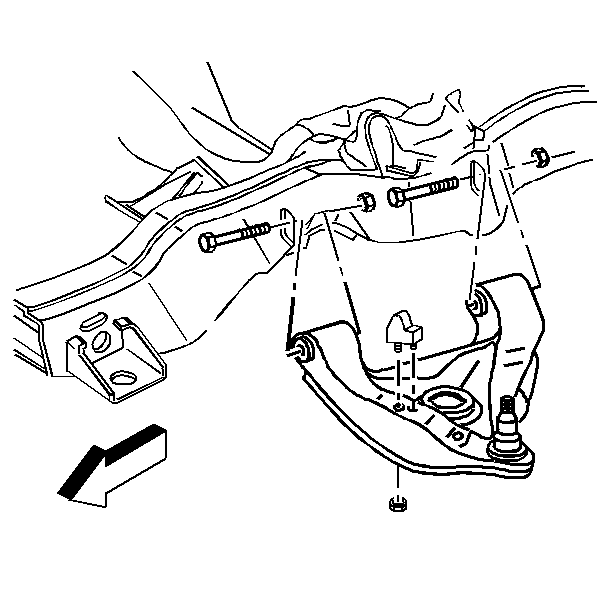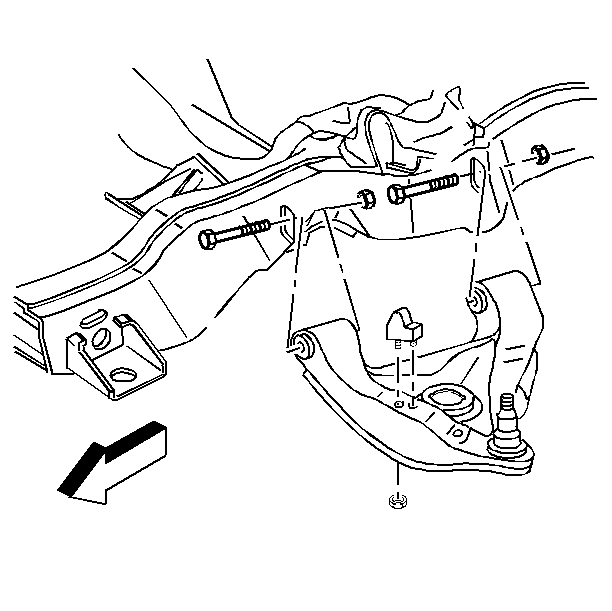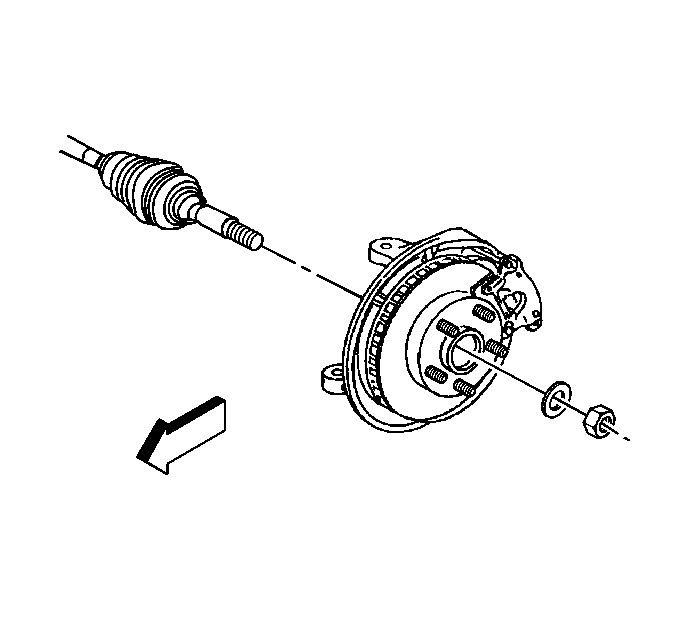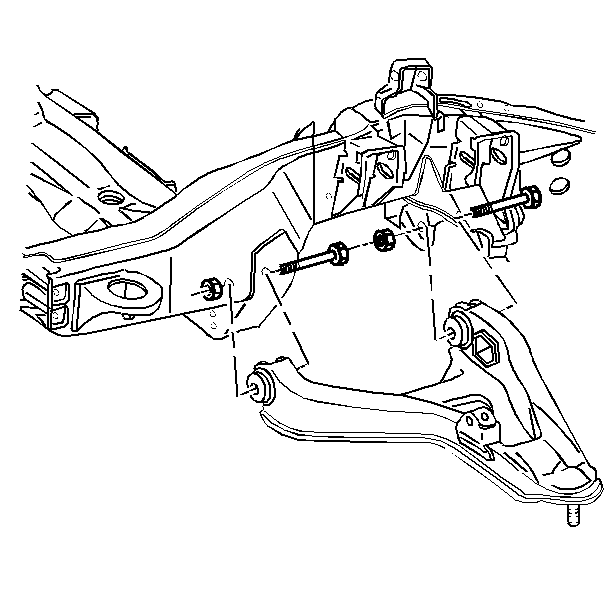Lower Control Arm Replacement RWD
Removal Procedure
- Remove the front coil spring. Refer to Front Coil Springs Replacement .
- Remove the lower ball joint from the steering knuckle. Refer to Lower Control Arm Ball Joint Replacement .
- Remove the lower control arm from the vehicle.
- Inspect the lower ball joint for wear, replace as necessary.

Installation Procedure
- Install the lower control arm to the vehicle.
- Install the lower ball joint stud to the knuckle. Refer to Lower Control Arm Ball Joint Replacement .
- Install the front coil spring. Refer to Front Coil Springs Replacement .
- Check the front wheel alignment. Adjust if necessary. Refer to Wheel Alignment Specifications in Wheel Alignment.

Lower Control Arm Replacement 4WD
Removal Procedure
- Raise and support the vehicle with safety stands. Refer to Lifting and Jacking the Vehicle in General Information.
- Remove the tire and the wheel. Refer to Tire and Wheel Removal and Installation in Tires and Wheels.
- Unload the torsion bar. Refer to Torsion Bar and Support Assembly Replacement .
- Remove the drive axle nut. This allows more clearance for removal of the lower control arm.
- Remove the stabilizer shaft. Refer to Stabilizer Shaft Replacement .
- Remove the shock absorber. Refer to Shock Absorber Replacement .
- Remove the nuts and bolts securing the lower control arm to the crossmember and the frame bracket.
- Remove the lower ball joint stud from the steering knuckle. Refer to Lower Control Arm Ball Joint Replacement .
- Remove the lower control arm from the frame.


Installation Procedure
- Install the lower control arm to the crossmember and to the frame bracket.
- Install the lower control arm bolts in the direction shown.
- Install the lower control arm nuts.
- Install the lower ball joint stud to the steering knuckle. Refer to Lower Control Arm Ball Joint Replacement .
- Install the shock absorber. Refer to Shock Absorber Replacement .
- Install the drive axle nut.
- Install the stabilizer shaft. Refer to Stabilizer Shaft Replacement .
- Load the torsion bar. Refer to Torsion Bar and Support Assembly Replacement .
- Install the tire and the wheel. Refer to Tire and Wheel Removal and Installation in Tires and Wheels.
- Lower the vehicle.

Important: Install the front leg of the lower control arm into the crossmember before installing the rear leg into the frame bracket.
Notice: Use the correct fastener in the correct location. Replacement fasteners must be the correct part number for that application. Fasteners requiring replacement or fasteners requiring the use of thread locking compound or sealant are identified in the service procedure. Do not use paints, lubricants, or corrosion inhibitors on fasteners or fastener joint surfaces unless specified. These coatings affect fastener torque and joint clamping force and may damage the fastener. Use the correct tightening sequence and specifications when installing fasteners in order to avoid damage to parts and systems.
Tighten
| • | Tighten the nuts with the lower control arm at the proper Z trim height. Refer to Trim Height Inspection in Suspension General Diagnosis. |
| • | Tighten the nuts and the bolts with the front suspension loaded. |
| • | Tighten the lower control arm front nut and the rear nut to 110 N·m (81 lb ft). |

Tighten
Tighten the drive axle nut to 140 N·m (103 lb ft).
